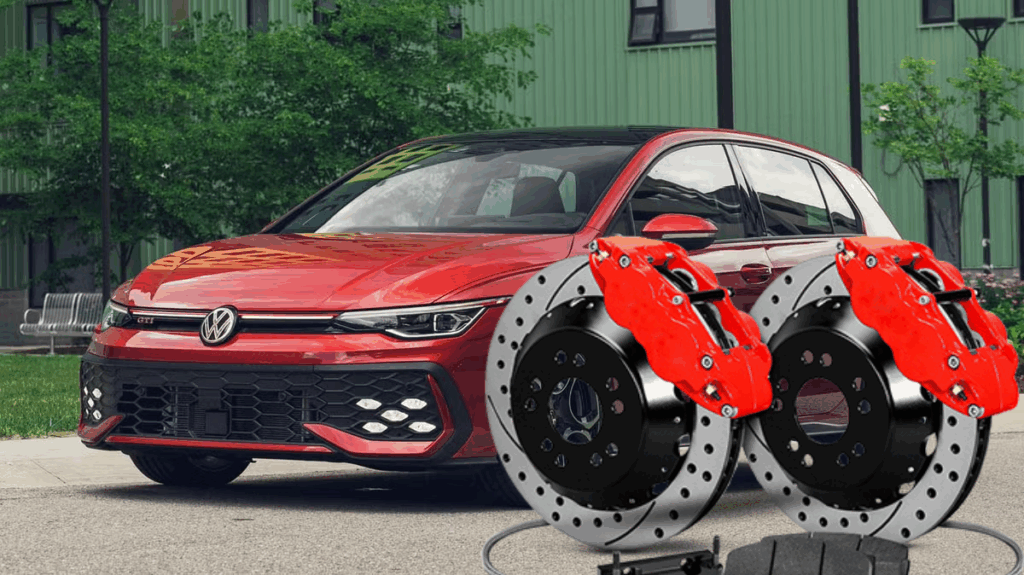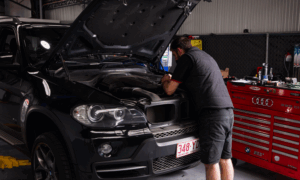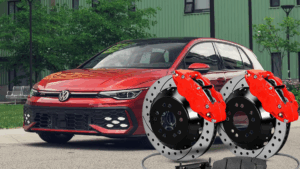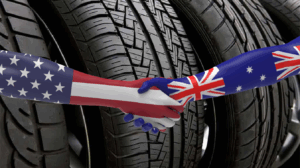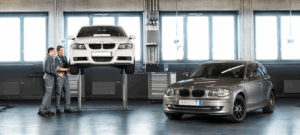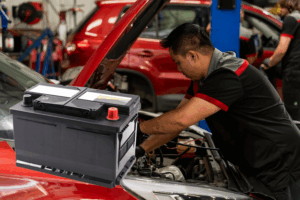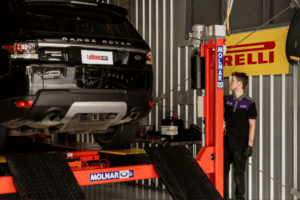Your VW Golf is built for precision, comfort, and control, and your brakes play a major role in that. Whether you drive a Golf GTI, Golf R, or a standard TSI, your brake system needs regular attention to stay responsive and safe. One of the most common questions Brisbane Volkswagen owners ask is how long do disc brakes last on a VW Golf? Here is what affects brake wear, how to recognise early signs of wear, and when it is time for replacement.
How Long Do VW Golf Disc Brakes Last?
In most cases, VW Golf brake pads last between 30,000 and 50,000 kilometres, while brake rotors (discs) usually last up to 80,000 to 100,000 kilometres before they need replacing.
However, this varies between models and driving styles. Here is a general guide for different generations of the Golf:
- Golf Mk5 (2004–2009): Smaller pad and rotor sizes mean front brakes often need replacement around 40,000 km, with rears lasting closer to 70,000 km.
- Golf Mk6 (2009–2013): Improved braking efficiency allows slightly longer life, with front pads typically lasting 45,000 to 60,000 km.
- Golf Mk7 (2013–2020): Heavier models and turbocharged variants like the GTI and R tend to wear pads faster, usually between 35,000 and 50,000 km.
- Golf Mk8 (2020–present): Equipped with larger performance braking systems, most models reach 50,000 km or more before needing pad replacement, but city driving can shorten this.
Performance models such as the GTI, R-Line, and Golf R use higher-temperature brake compounds that resist fade but wear faster under normal driving.
Signs Your VW Golf Brakes Need Servicing
Your Golf’s braking system is designed to warn you before performance starts to drop. Watch for:
- Squeaking or squealing noises when braking
- Vibration or pulsing through the brake pedal
- Longer stopping distances or a softer pedal feel
- Brake warning light on your dashboard
- Visible scoring or grooves on the rotors
If you notice any of these, it is time to book a VW brake service before the problem worsens.
Why Do VW Brakes Squeak?
Many owners ask why VW brakes squeak, even when the pads are not worn out. A light squeal can happen when moisture, dust, or glaze builds up on the pads. In Brisbane’s humid conditions, this is common, especially after rain.
Persistent squealing usually means the pads are near their wear limit or the anti-rattle hardware needs lubrication. Performance models like the Golf GTI or Golf R may also produce more noise due to their metallic pad compounds.
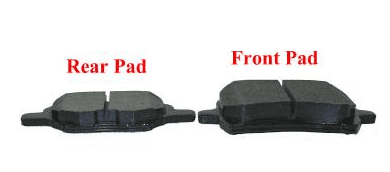
Front Brakes vs Rear Brakes on the VW Golf
Front brakes handle up to 70 percent of the braking load, which is why they typically wear out first. Rear brakes can last much longer but require special servicing on newer Golfs.
For example, the Golf Mk7 and Mk8 both use electronic parking brakes that must be placed in service mode before the calipers can be retracted. Attempting a DIY replacement without diagnostic tools can damage the calipers or cause electronic faults.
If you have looked up how to change rear brakes on a VW Polo or Golf, you will see that even simple pad changes are better left to a European specialist.
VW Fixed-Price Brakes: What to Know
Volkswagen dealerships sometimes advertise VW fixed-price brakes for pad and rotor replacements on certain models. These offers can be convenient but often exclude higher-performance models such as the Golf GTI and Golf R, or they do not include hardware kits and sensors.
Independent European workshops such as Bosch Service Brisbane can often match or beat dealer pricing while still using OEM or genuine VW components. This approach gives you flexibility and transparent pricing without compromising quality.
Model-Specific Brake Notes
Here is a closer look at typical brake behaviour for key Golf models:
- Golf GTI: Front brakes wear faster due to higher output and sportier driving. Rear pads may last twice as long.
- Golf R: Uses larger 340–350 mm rotors. Expect shorter pad life due to greater braking force, typically 30,000 to 40,000 km.
- Golf 1.4 TSI and 1.6 TDI: Lighter vehicles mean lower wear rates. Pads often last up to 60,000 km in gentle driving.
- Golf R-Line and Alltrack: Mid-range braking systems balance comfort and stopping power. Standard service intervals usually apply.
How to Make Your VW Brakes Last Longer
Simple habits can extend the life of your brakes and save money over time:
- Avoid harsh braking where possible.
- Leave space in traffic to reduce constant braking.
- Flush brake fluid every two years to protect the system from corrosion.
- Book regular inspections with each service.
- Use OEM-quality pads and rotors to prevent premature wear.
When to Book a VW Brake Inspection
If your VW Golf has done more than 30,000 kilometres since its last brake check or you notice squealing or vibration, it is time for an inspection.
At Bosch Service Brisbane, we provide expert VW brakes and repair for all models, from the Mk5 through to the latest Mk8. Our European-trained technicians use factory-grade diagnostic tools and OEM parts to ensure smooth, quiet, and confident braking on Brisbane roads.
Final Thoughts
Your VW Golf’s braking system is engineered for precision and reliability, but it depends on regular maintenance. Knowing how long disc brakes last on a VW Golf and recognising early signs of wear can help you stay safe and avoid expensive repairs.
Whether you own a Golf GTI, Golf R, or standard TSI, maintaining your brakes through a trusted European specialist will keep your Volkswagen stopping smoothly for years to come.

